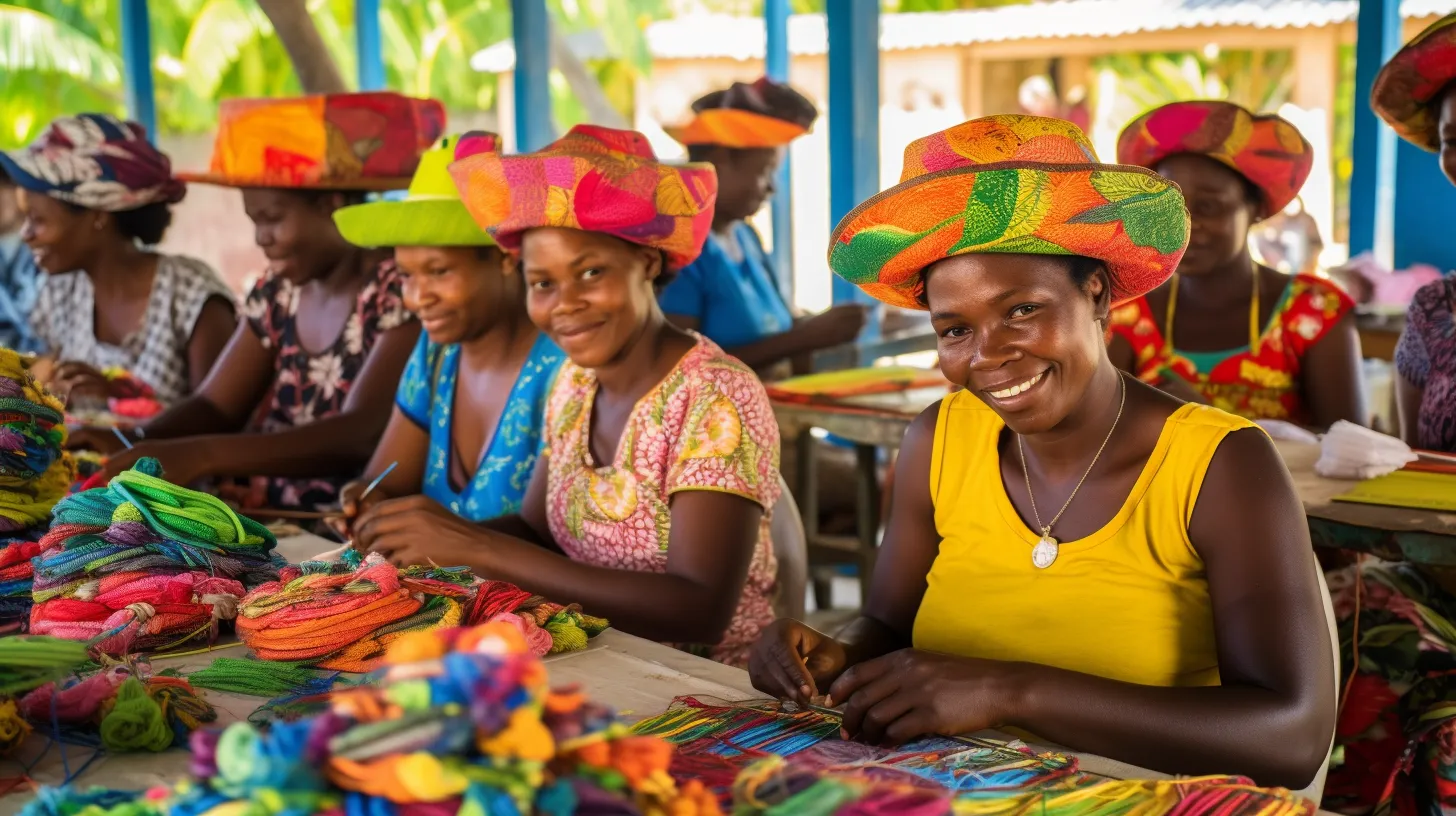Yes, women in Haiti do participate in the workforce, but they face significant challenges. Despite their active engagement in various sectors, women experience higher unemployment rates, limited access to resources, and gender-based discrimination. These factors create obstacles to their workforce participation and economic empowerment.
Additionally, women in Haiti frequently encounter gender-based violence and have limited decision-making authority. Ongoing efforts are being made to address these disparities, with initiatives focused on enhancing women’s representation and opportunities in the workforce.
However, achieving gender equality and establishing a more supportive environment for female employment in Haiti requires further work.
Gender Disparities in Employment

Women’s limited access to productive resources and higher rates of unemployment perpetuate gender disparities in the Haitian labor market.
In Haiti, women face significant challenges in accessing land, financial instruments, and claiming sole ownership of productive assets, hindering their economic empowerment.
The labor force participation for women was 62% in 2019, compared to 70% for men, reflecting a substantial gender gap. This disparity leads to women being relegated to low-income jobs in the informal sector, limiting their opportunities for high-paying and advanced positions.
Additionally, prevalent sexual harassment further constrains women’s economic empowerment.
These social and gender gaps contribute to women’s higher likelihood of unemployment, especially in urban areas, and perpetuate segregation in the workplace. Addressing these disparities is crucial for creating a more equitable and inclusive labor market in Haiti.
Historical Context of Female Labor

A significant number of Haitian women entered the workforce during the 1930s economic crisis, marking a pivotal moment in the historical context of female labor in Haiti.
This event challenged traditional gender roles and highlighted the prevalent gender inequality within the Haitian economy.
Despite the advancements made by the women’s movement, Haitian women continue to have a low labor market attachment and frequently work in the informal sector.
Cultural and social norms also contribute to the perpetuation of gender disparities, with issues such as rape and domestic violence posing significant barriers to women’s economic participation.
Furthermore, limited ownership of property and pervasive gender-based violence further hinder women’s economic empowerment. Understanding the historical context of female labor in Haiti provides insight into the persistent challenges that women face in accessing and benefiting from the formal labor market.
Barriers to Women’s Workforce Participation

Facing limited access to productive resources and pervasive gender-based violence, female workforce participation in Haiti is hindered by numerous barriers.
Discrimination in the labor market limits women’s access to formal employment, pushing many into informal work with unstable incomes. This is particularly pronounced in both urban and rural areas, where women often lack access to land, financial instruments, and business opportunities.
Gender-based violence further restricts women’s ability to engage in the workforce, creating an environment of fear and insecurity.
The COVID-19 pandemic has exacerbated these challenges, leading to job losses and increased caregiving responsibilities for women.
Addressing these barriers requires comprehensive efforts to promote gender equality, provide economic opportunities, and combat gender-based violence in Haiti.
Initiatives and Opportunities for Women

Amidst the challenges, initiatives and opportunities for women in Haiti strive to empower and support their participation in the workforce.
Efforts are directed towards promoting gender equality, addressing the high percentage of women working in the informal sector, and combating violence against women. Organizations like the Ligue Féminine d’Action Sociale have been pivotal in advocating for women’s rights and legal protection.
Additionally, programs such as the LEAD initiative have provided productive resources and funding for women-owned businesses, creating job opportunities and economic empowerment.
Training programs and support for higher education are also crucial components in enhancing women’s participation in the formal workforce.
These initiatives not only aim to increase women’s economic independence but also work towards establishing a more inclusive and equitable society in Haiti.
Future Outlook for Female Employment

The future outlook for female employment in Haiti holds promise for increased opportunities and advancements in the labor force.
Despite gender-based discrimination and challenges such as sexual violence and gender inequality, the workforce participation of women in Haiti has been gradually increasing.
Efforts to address these issues, such as gender assessments and initiatives to support women traders, indicate a growing recognition of the importance of gender equality in the workforce. Policy recommendations, including job training programs and support for childcare, food, and transportation, suggest a potential for positive change.
Additionally, the work of NGOs and advocacy groups, along with awareness-raising projects, is contributing to a potential shift in societal attitudes towards women in the workplace.
While there are still obstacles to overcome, the future holds promise for improved opportunities and conditions for female employment in Haiti.



